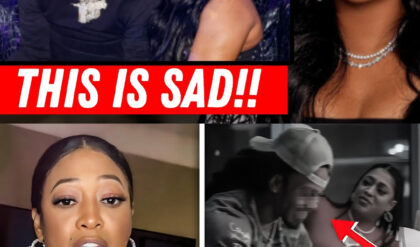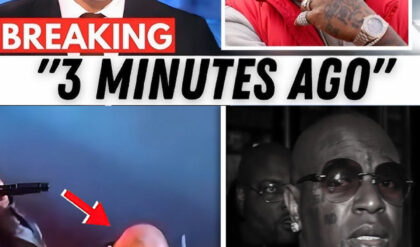Angie Stone’s Funeral Takes Shocking Turn as Daughter Diamond Delivers Emotional Tribute
When iconic neo-soul artist Angie Stone passed away, fans and fellow musicians mourned deeply. Stone, whose influential career spanned more than four decades, left behind a remarkable legacy marked by hits like “No More Rain (In This Cloud)” and collaborations with legends such as D’Angelo, Alicia Keys, and Mary J. Blige.
Yet, it was the emotionally raw tribute from her daughter Diamond at her funeral that truly stunned everyone and sparked widespread debate.

Angie Stone wasn’t merely a singer—she was an innovator. Starting her career in the pioneering female hip-hop trio The Sequence, Stone made history with their 1979 hit “Funk You Up.”
She later transitioned into a solo career, becoming an influential figure in neo-soul, blending rich, classic R&B textures with modern styles, creating music that resonated with millions.
Despite her fame, Angie Stone’s life included notable struggles, including financial difficulties, health issues like diabetes, and a publicly complicated relationship with her daughter Diamond. In 2015, Stone faced controversy when she was arrested following a domestic incident involving Diamond, highlighting deep-rooted family tensions.
At Stone’s funeral, the attendees—family, musicians, and loyal fans—came expecting heartfelt tributes celebrating her impressive career. However, the ceremony took an unexpected turn when Diamond stepped up to deliver her speech. Rather than focusing solely on her mother’s accomplishments, Diamond addressed their complex relationship candidly.

Visibly emotional, Diamond shared openly about the pressures of being Angie Stone’s daughter. She acknowledged their difficult past, emphasizing the depth of their bond despite their well-publicized conflicts.
Her powerful honesty brought many mourners to tears but also stirred controversy among others who felt the funeral was an inappropriate setting for such revelations.
Diamond’s tribute rapidly went viral online, dividing fans and the public alike. Supporters praised her courage, empathizing with the messy reality of grief.
They argued Diamond had every right to express her authentic feelings, stating that grieving doesn’t always follow traditional norms. On the other hand, some critics believed her words overshadowed Stone’s legacy, arguing that personal conflicts should have remained private, especially during a ceremony meant to honor her mother’s career.

Responding to the backlash, Diamond defended her choice. She explained that being truthful was essential to her grieving process, emphasizing that love and conflict could coexist within family relationships. Her candidness opened broader conversations about how public figures’ funerals should balance personal truths with their professional legacies.
Meanwhile, the music industry continued paying tribute to Angie Stone. Fellow neo-soul legends Jill Scott, Erykah Badu, and D’Angelo celebrated her influence online, recalling memories and acknowledging her vital role in shaping contemporary R&B.
The aftermath of Diamond’s tribute highlighted broader societal questions—how do we respectfully honor the complicated lives of celebrities? Should tributes only highlight successes, or is honesty about imperfections essential to genuine remembrance?
Ultimately, Angie Stone’s legacy endures, defined by her groundbreaking music, resilience, and authenticity. Her funeral, unexpected as it was, reminded everyone that behind iconic public images lie deeply human stories filled with both triumph and struggle—truths that continue to resonate long after the music stops.





